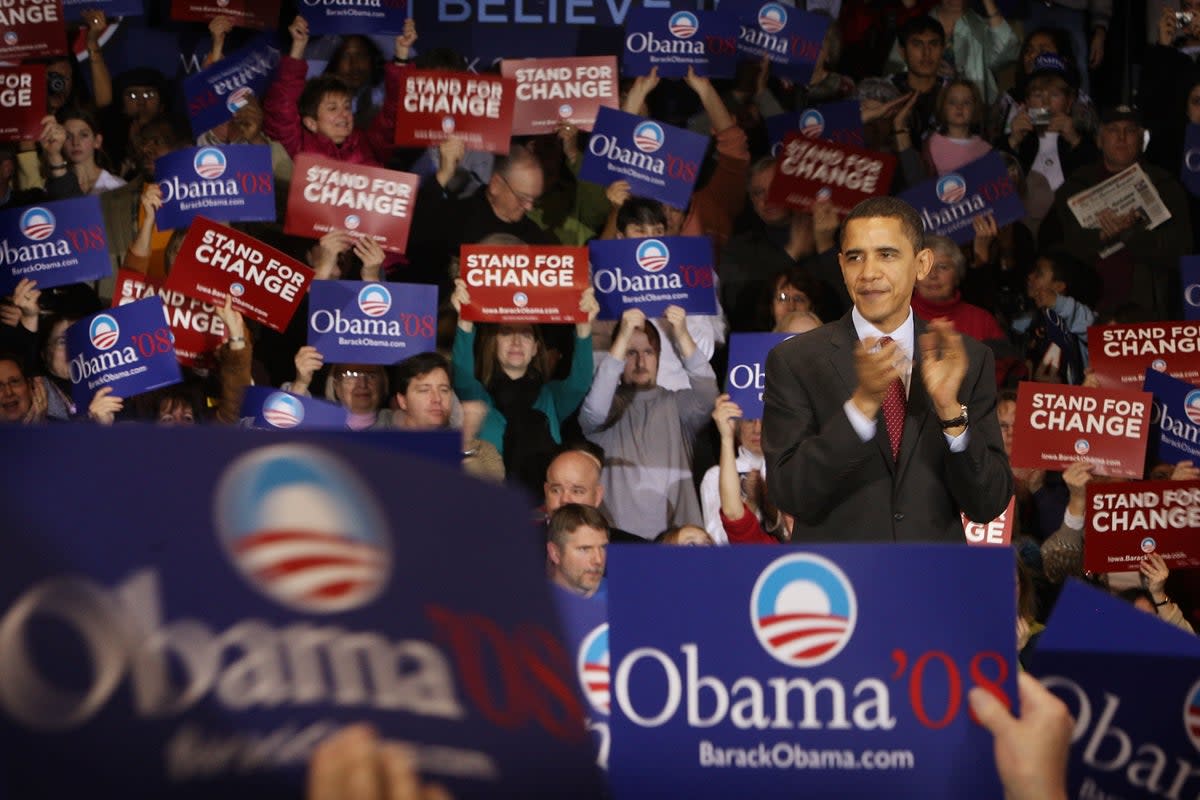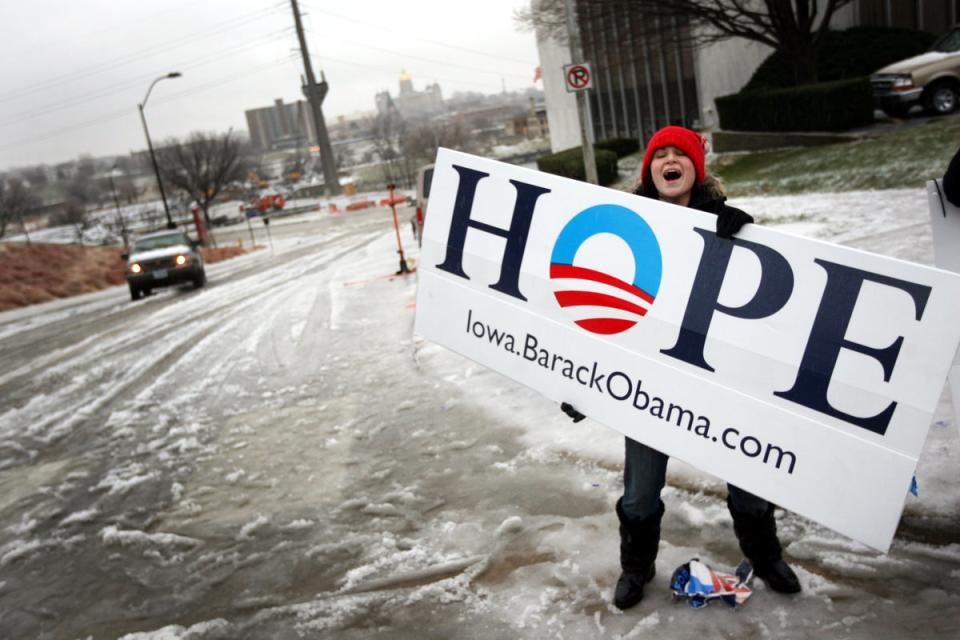Voices: The Iowa caucus was unforgettable but its outsized influence was anything but democratic

- Oops!Something went wrong.Please try again later.
Nobody who has covered the Iowa caucuses will ever forget it.
You arrive in the middle of winter in your warmest coat, and carrying in your head the myths and folklore of American politics.
Was it not here, in the country’s heartland, that a barely heard of, one-time peanut farmer from Georgia, held so many one-on-one meetings with potential voters, he was able to win the state on his way to the White House?
And was it not amid those same icy roads and frozen fields three decades after Jimmy Carter’s victory, that a little-known senator from Illinois was able to pull off an even bigger surprise, defeating a member of the Democratic Party royalty. Do you remember his words about there being neither a “red” or “blue” nation, but the “united” states of America?
Iowa is all this and more. For a foreign reporter, who had only read of the process, to arrive and see it in action is astonishing.
Candidates really do drive across the states, often in buses, and speak to people in diners, community halls and occasionally, at somebody’s home.
Potential voters can ask questions of those candidates – about any topic under the sun. If someone has not done their homework they will be caught out.

And on caucus night, always a Monday, people gathered in school halls and debate each other as to who the best candidate was. They then vote for their choice not by pulling a lever or crossing an X on a piece of paper, but by walking to the huddle of people who also backed that person.
If a candidate had just one supporter, they would stand by themselves, sometimes a little self-consciously, until their “vote” was tallied by an election official.
For anyone interested in American politics, it was simply the best assignment on the political calendar.
In 2016, you could see people react so powerfully to Donald Trump in a way that presaged, if you looked carefully, the appeal he would offer to many Americans. He could be charming, self-effacing, but also ready to tear up the rule book.
That same year, you could see the way Bernie Sanders electrifies a crowd, and the disdain many supporters had for the supposed favorite, Hillary Clinton, vowing they’d rather vote for Trump than someone who so represented the establishment.
In 2020, the most powerful memories were of the charisma of Pete Buttigieg, and his ability to warm a crowd, and Dr Jill Biden, knocking on doors in the snow in the city of Davenport. “I have heard this all over Iowa and New Hampshire,” she claimed, as she pitched for her husband. “We need someone we can respect – a leader.”
Yet the biggest story that year was not Biden’s poor, fourth-placed showing, but the meltdown that happened on Caucus night. The state Democratic Party was using an untested app to tally results that essentially broke down. It took a week for officials to tally results, by which time everyone had left the state, with two of them claiming victory.
It was a massive embarrassment. People vowed that Iowa was done.
For all the nostalgia of the Iowa caucuses, its location as the first, and therefore a highly influential, state to vote, was long in need of change.
For all its folksy charm, Iowa did not represent America. Most obviously, its population was 89 per cent white, compared to 71 per cent nationally.
It was more conservative, more rural, less metropolitan, and becoming redder and less purple.
That might suit the Republican Party, but certainly not the Democrats, for which a large number of the base is African American, or other minorities. (Indeed, the last Democratic candidate to win the state in the general election was Obama in 2012.)
Critics also said the caucus system did not offer people a chance to vote privately, and forced people to show up in person on an invariably frigid winter night
All of which helps explain why Democrats are this week set to vote on a new primary order to select its candidate for president.
The Democratic National Committee is meeting in Philadelphia and on the agenda is a plan to replace Iowa with South Carolina, a larger, more diverse state, and where in 2020 Biden secured his first win. He would use it to turn around his fortunes and go to win the nomination.
While Biden obviously supports the move, there appears to be broad support for the plan, which would see South Carolina go first, New Hampshire and Nevada one week later, and then primaries in Georgia and Michigan.
The DNC’s Southern Caucus publicly backed the plan this week.
“The past few elections have made it abundantly clear that the South is the new Democratic battleground, and by starting the presidential nominating process in South Carolina and incorporating Georgia into the early lineup, our party will only strengthen its commitment to these critical voters,” it said. “The road to the White House runs through the South.”
And those mourning the cold days spent chasing across Iowa should bear in mind it only secured a first-place status after outcry at the 1968 Democratic convention. Outrage over the behind the scenes dealing that selected pro-Vietnam War Hubert Humphrey rather than Eugene McCarthy, forced the party to select a more transparent system.
Will the South Carolina primary be as fun and become as famous as the Iowa Caucus?
Of course. This is American politics we are talking about.

